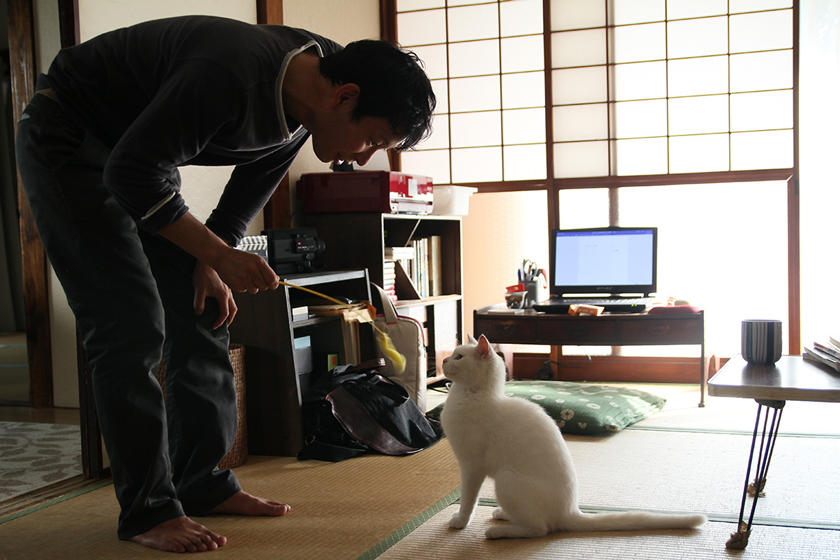In terms of the role they play in the lives of humans, pets have gone from being “domesticated animals” fulfilling a function for their masters to being integral members of the family. Whether cat, dog, fish, bird, snake, or something more exotic, pets figuratively and often times literally occupy a special place in the home. For young children, they may seem like another sibling. For adults, they may be viewed like their own children; in some cases, pets take the place of children who have left they nest or had never been. This is the essential focus of Beloved Nora – A Chance Encounter with Happiness (lit. translation).
The story revolves around an insignificant screenwriter, Tsukumo Sakumi and the stray cat which wanders into his life. Naming the cat Shiro, he and his wife, Hiori, decide to keep it. Without children of their own, the couple dote on Shiro like parents would a child. Then one day Shiro does not return home after going outside. Sakumi disregards his work to go in search for Shiro, but after finding no clues to Shiro’s whereabouts, Sakumi becomes despondent. Then, as if things couldn’t get worse, something happens to Hiori.
Considering the “cat craze” currently seizing Japan (a reflex to the “dog craze” which preceded it), this could easily be written off as another movie trying to capitalize on the craze by featuring cats with a healthy sprinkling of melodrama were it not for two factors. The first is the presence of actor Mizusawa Shingo whom some might remember as “Tom” in Irie Yu’s 8000 Miles: SR Saitama’s Rapper, but who also turned in a powerfully subtle performance in Omori Tatsushi’s Bozo which dealt with a depressed temp worker going on a stabbing spree in Akihabara . One doesn’t cast a performer of his level if this were merely a bittersweet helping of feline fetishism. Sakumi’s state as a trifling screenwriter, the respite the existence of Shiro provides him from that reality, and ultimately Shiro’s disappearance as well as events involving Hiori requires someone who can display complex internal emotions without relying on dialogue. From his posture to his facial expressions, Mizusawa is sure to bring a depth to the character.
Which makes the second factor equally as important: the director. At the helm is Tajiri Yuji whose previous work Broken Pieces is a personal favorite from 2014. The story of the unrequited love between childhood friends in a small town required a deft touch and sincerity to keep the narrative from tipping into melodrama. The result was a frank, honest portrayal of those little heartbreaks in our lives without the excesses which could otherwise spoil the simple nature of its theme. Tajiri, a decorated director of contemporary pink films, possesses a keen understanding of how to guide his actors to economically express their complex feelings for someone, or in this case something, special to them.
The combination of Mizusawa and Tajiri hint at a movie that rises above its obvious or perhaps inferred appeal. It recently opened at Shibuya’s Eurospace theater in mid-November and will move on to screenings in Nagoya (mid-December) and Yokohama (late-December). The producers have yet to lay out an international rollout–the title above is not official–but with luck, someone in the international community will take notice and encourage them to present their film abroad.

